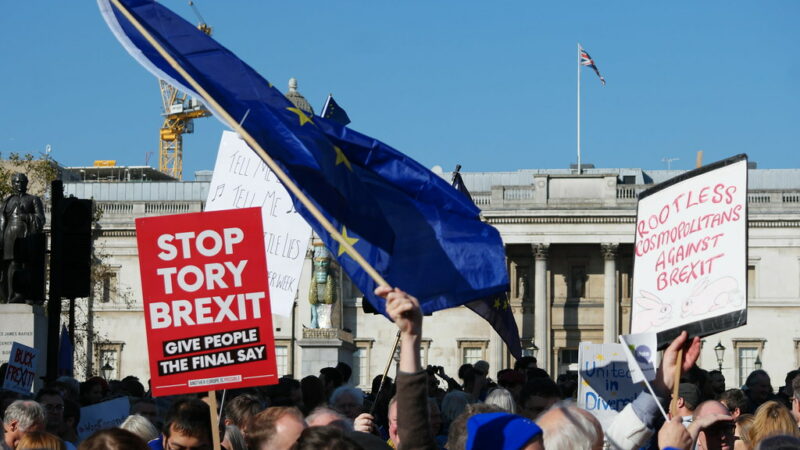Brexit has had an adverse impact on exporters

The current cause of soaring food inflation, which has seen prices reach a 45 year high, can be put down to Brexit, a Bank of England expert has said.
Policy maker Catherine Mann, an external member of the Monetary Policy Committee, said that the costly red tape following Brexit had significantly impacted exporters from the EU who had stopped participating in that ‘traded marketplace’.
“The smaller exporters which provided additional supply, additional competitive pricing, what we have observed is those smaller exporters from the EU into the UK really have exited from participating in that traded marketplace,” she said in a panel discussion on Friday.
“It gets too expensive to get over the red tape and so forth, so that’s an important ingredient.”
Her comments come after the chair of the OBR Richard Hughes said that the decision to leave the EU, in the long run, reduces our overall output by around 4%.
Asked on the BBC how he would describe 4%, Hughes replied: “It’s a shock to the UK economy of the order of magnitude of other shocks we’ve seen”, such as the Covid pandemic and the energy crisis.
Last month it was revealed that Brexit had cost the average UK household £1,000, due to a lack of investment following the referendum, according to a Bank of England economist.
Jonathan Haskel, an external member of the central bank’s Monetary Policy Committee (MPC), said investment had been “stopped in its tracks” by the decision to leave the EU.
He also highlighted the hit to productivity as a result of the referendum which he said was about 1.3% of GDP, or around £29bn.
Basit Mahmood is editor of Left Foot Forward
To reach hundreds of thousands of new readers we need to grow our donor base substantially.
That's why in 2024, we are seeking to generate 150 additional regular donors to support Left Foot Forward's work.
We still need another 117 people to donate to hit the target. You can help. Donate today.



